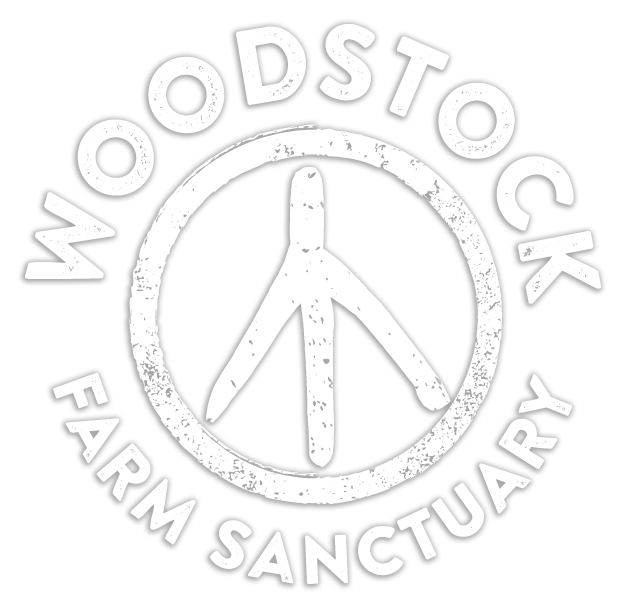We Are Not Saviors
The #MeToo movement has landed in the Animal Rights sector due to the diligence and bravery of activists like pattrice jones, lauren Ornelas, Carol Adams, Rachel Perman, and women who have bravely spoken out about the harassment and coercion that they’ve suffered at animal nonprofits. [READ]
There have been powerful statements put out by women leaders of nonprofits like Erica Meier and Aryenish Birdie; I encourage you to read their words and follow this unfolding story:
Compassion at Work: Building a Stronger Movement Together from Compassion Over Killing
Statement on Sexual Harassment and Gender Equity from Encompass
Recent blog posts from Carol J. Adams
This reckoning has been a long time coming.
And while this is about men who have abused their power and hurt many people as well as the organizations they serve, it’s also about how we treat leaders.
To change the patterns of abuse of power in our movement, we must dismantle structures of oppression that disallow and discourage transparency. We must demand that nonprofits have boards of directors that aren’t just made up of friends of the founder or executive director and that there are proper policies for governance. For Woodstock Farm Sanctuary, that meant putting in place a Whistleblower Policy that protects staff now and in the future from retaliation and really working on board development so that we continue to have a board that doesn’t see anyone here as above scrutiny and accountability. We’ve also taken a good look at all our staff policies including our sexual harassment policy. There is no tolerance for abuses of power, cover ups, and for sycophantic behavior towards anyone here. These behaviors can not only hurt people, but they hurt the animals in our care. We’ve been having a lot of conversations about societal power structures and dominant culture and identifying each of our own personal privileges as we want Woodstock Sanctuary to be an inclusive space for staff, visitors, and supporters. I find that breaking this down isn’t easy and we’ve had some internal and external resistance, but it’s so necessary to give our team a framework to analyze our hiring and retention practices, our advocacy, and our interpersonal interactions.
If you find yourself at an animal organization saying “don’t talk about this,” “no one can know about this,” or “you’ll hurt the animals if you say something,” you need to take a hard look on what truths are being hid. If a nonprofit’s board members say they can’t consider what is being reported about a leader in the organization because that leader is too valuable to the organization or the movement, those board members should leave the board. Animal nonprofits can be centered on justice and rescue work and not an individual personality. After all, exploited and suffering animals don’t need an individual savior, they need systemic justice and liberation and this is our collective mission. And this root work can’t be done if we allow abuses and silencing of our colleagues and collaborators.
Instead we can encourage workplace cultures where we say “tell me about it,” “what do you think,” and “I believe you.” If no one’s ideas are king then no one is king.
This is not just a societal problem of individual men or Men, it’s a problem in animal rights where we treat certain individuals like animal saviors and rock stars. No one is more valuable than the work. And when we act as if we as individuals are above human and societal corruption and failings because we do rescue work, we fail our colleagues and animals. At sanctuaries and rescues as well as larger more corporatized outreach organizations, we must not deify charismatic individuals. Break that nonsense down.
I’ve been working alongside our team and board of directors to prevent Woodstock Farm Sanctuary from having the fissures where abuse of all kinds can collect. We want a collaborative, inclusive, and highly engaged culture and are working on it diligently every day.
Here at Woodstock Sanctuary, we’ve had to make some decisions about how to feature me as an individual leader. While I love the advocacy of public speaking, writing, and appearances, and I don’t shy away from sharing selfies and photos taken with animal residents, we overtly share and highlight the work and voices of many people here — never just one voice. That’s not as easy but it’s intentional. Part of the intention is to highlight that animal rights work and rescue work is communal work that is based on justice and we are all necessary, but it’s also to make my personal role clear: I am doing a job that I am amazingly lucky to have but I am not indispensable.
Every step that we take to make everyone valued and heard in our organizations keeps abuses of power from happening and allows them to be dealt with swiftly when they do happen.
I am in awe of the brave women stepping into the light and holding both powerful men and powerful organizations accountable.
For the animals,
Rachel McCrystal

